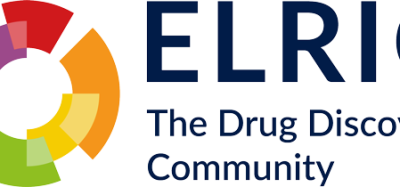IMI Update: K4DD – Kinetics for Drug Discovery
Posted: 29 October 2013 | Drug Target Review
In every issue of Drug Target Review, we will provide an update of the latest IMI projects and EU-funded initiatives…
Drugs work by binding with molecules in the body and to either block or alter the action of the target molecule. The goal of the K4DD project is to improve our understanding of how potential drugs bind with their target, and develop methods and tools to allow researchers to study drug-target interactions with greater ease. These tools would help researchers to determine whether a drug candidate is likely to be safe and effective much earlier in the drug development process.
The difficulties of drug development
A major difficulty for those attempting to develop new medicines is predicting whether or not a potential drug will be effective in humans. The laboratory tests used to evaluate this today are simply not accurate enough. Currently, researchers spend a lot of time studying how strongly a potential drug binds with its target. However, less attention is given to the question of how long the drug remains bound to the target. Nevertheless, there is mounting evidence to suggest that the kinetics of the interaction between a drug and its target have a strong influence on the clinical success of a drug. For example, studies have shown that many recentlymarketed drugs have improved kinetic profiles. This is logical; as drugs only work when they are bound to the target, the lifetime of the drug-target complex is key to the success of a drug.
Towards a better understanding of binding kinetics
Today, a lot of the expertise and data on binding kinetics is scattered across numerous smaller projects, institutions and organisations. By bringing together these diverse groups, K4DD is set to give a major boost to this important area of drug development.
The first goal of the K4DD team is to enhance our understanding of binding kinetics; exactly how do small molecules interact with their targets?
Ultimately, the project aims to develop a range of robust techniques, methods and models that could be easily incorporated into the drug development pathway and enable scientists and drug designers worldwide to reliably predict a molecule’s kinetic properties (its ‘kinotype’). This information will allow drug developers to more easily determine the safety and efficacy of a molecule. In the long run, this will weed out ineffective or unsafe molecules earlier in the drug development process.
Finally, the project also hopes to raise awareness of the importance of considering the kinetic aspects of drug-target interactions throughout drug development.
For patients, the benefits of K4DD lie in its efforts to speed up and improve the drug development process.
Key information
Start Date: 01/11/2012
Duration: 60 months
Contributions:
IMI funding: €8,300,000
EFPIA in kind: €9,800,000
Other: €2,800,000
Total cost: €20,900,000
Participants
EFPIA
- Bayer Pharma AG, Berlin, Germany
- AstraZeneca AB, Sodertalje, Sweden
- F. Hoffmann-La Roche AG, Basel, Switzerland
- GlaxoSmithKline Research and Development Ltd, Brentford, UK
- Janssen Pharmaceutica NV, Beerse, Belgium
- Merck KGaA, Darmstadt, Germany
- Sanofi-Aventis Deutschland GmbH, Frankfurt am Main, Germany
Universities, research organisations, public bodies, non-profit groups
- Universiteit Leiden, Leiden, Netherlands
- Foundation Top Institute Pharma (Stichting Top Instituut Pharma), Leiden, Netherlands
- Imperial College Of Science, Technology & Medicine, London, UK
- Ruhr-Universität Bochum, Bochum, Germany
- Stichting VU-VUMC , Amsterdam, Netherlands
- Universität Wien, Vienna, Austria
- University of Dundee, Dundee, UK
- University of Nottingham, Nottingham, UK
- University of Oxford, Oxford, UK SMEs
- European Screening Port GmbH, Hamburg, Germany
- Heptares Therapeutics Limited, Welwyn Garden City, UK
- HITS gGmbH, Heidelberg, Germany
- Sierra Sensors GmbH, Hamburg, Germany
Related topics
Drug Discovery, K4DD Project, Kinetics
Related organisations
GSK (GlaxoSmithKline), Innovative Medicines Initiative (IMI)








